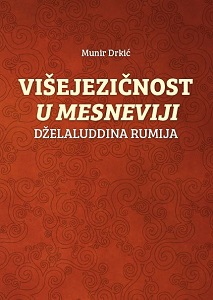VIŠEJEZIČNOST U MESNEVIJI DŽELALUDDINA RUMIJA
Multilingualism in Jalal ad-Din Rumi’s Masnevi
Author(s): Munir Drkić
Subject(s): Language and Literature Studies, Studies of Literature, Theology and Religion, Islam studies
Published by: Naučnoistraživački institut »Ibn Sina«
Keywords: The Masnavi; Masnavi-i Ma'navi; Jalal al-Din Muhammad Balkhi Rumi; multilingualism;
Summary/Abstract: The subject of this book is multilingualism in the Masnavi of Jalaluddin Rumi. The research aims to describe the phenomenon of multilingualism in Rumi’s most famous work on the basis of modern studies of multilingualism in linguistics.Thanks to the growing interest of researchers for multilingualism in the last two decades, studies have begun to address some new aspects related to the topic, which had traditionally not been dedicated special attention. While formerly multilingualism had been understood as the use of different languages in written or spoken discourse, today multilingualism in Linguistics, is not seen only as mixing different languages in communication or written texts, but many other aspects are included.This attitude towards multilingualism has opened up a space towards exploring historical aspect s of the phenomenon, where this research falls in.Three aspects of multilingualism in the Masnavi are described: 1.views on multilingualism in the historical development of the science of language, evaluation and comparison of different languages and Rumi’s original contribution in this field, 2. multilingualism in communication between speakers of different languages and 3. use of different languages,or the multilingual poetry and poetry in different languages in the book.In the first of the three aspects of the research, we give a survey on attitudes on different languages and multilingualism from the Middle Ages, on the basis of relevant resources in the field of Linguistics, and also a glimpse into language conflicts between Arabic and Persian from the 9th century. This entire chapter is about explaining of the meaning and background of the verse in which Rumi calls to speak Persian, even if Arabic is better, and concludes that love can be expressed in a hundred languages. Rumi’s attitude towards multilingualism is compared with the attitude of Dante Alighieri. Although Rumi lived before Dante, his evaluation of different languages is based on much more understanding in relation to Dante, and many later authors, including the tradition of which he himself belonged to. Indeed, Rumi’s attitude towards multilingualism is more that of the 21st century than the times in which he lived. In the Masnavi he gives a completely original attitude on Arabic as a lingua franca, Persian as his mother tongue and multilingualism as a phenomenon.
- Print-ISBN-10: 9958-845-19-2
- Page Count: 280
- Publication Year: 2016
- Language: Bosnian
- eBook-PDF
- Table of Content
- Introduction

